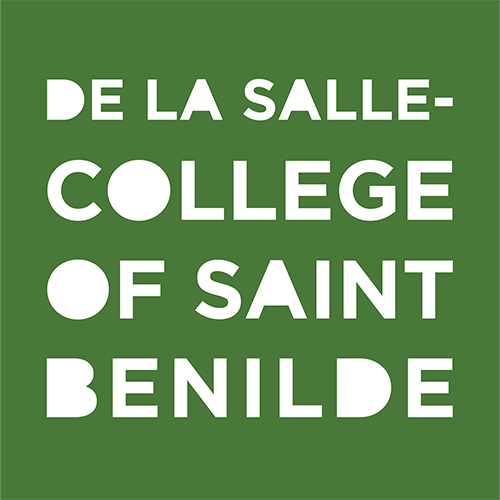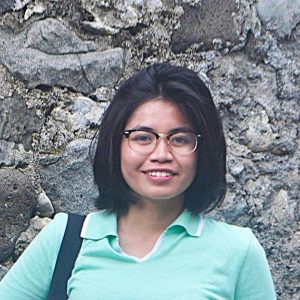Discussion on Research Security with Dr. Jane Knight Held at Benilde
Discussion on Research Security with Dr. Jane Knight Held at Benilde
On February 14, De La Salle-College of Saint Benilde (DLS-CSB) hosted a focused event at the 6th floor Linkages Room, The Atrium@Benilde Campus, addressing contemporary issues in higher education. Dr. Jane Knight, a scholar from the Ontario Institute for Studies in Education at the University of Toronto, led an insightful discussion on research security in international higher education. Key representatives from the Commission on Higher Education (CHED) – Transnational Higher Education and International Affairs Service, and Benilde’s Center for Intellectual Property Management attended the event.
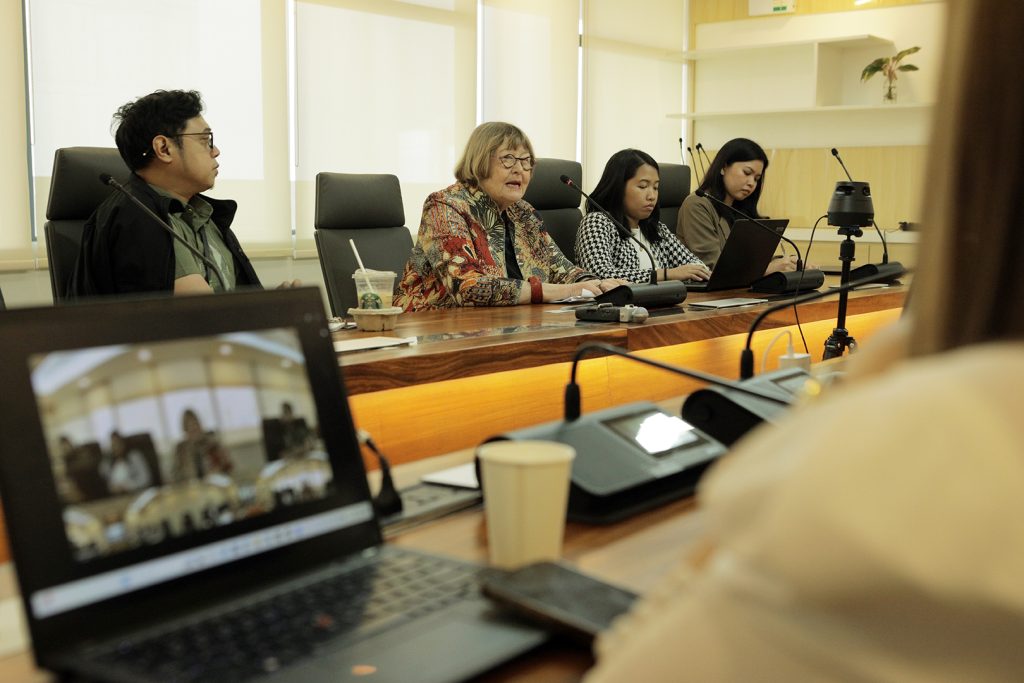
Dr. Knight highlighted her transition from focusing solely on the internationalization of education to encompassing international higher education research and innovation (IHERI). She noted that traditional international educational efforts have concentrated on academic, social-cultural, and economic benefits, while political relations have been less prioritized. Her recent work explores the intersection of international higher education and political relations, emphasizing the importance of securing research.
A central theme of Dr. Knight’s talk was the need to address risks associated with new research findings. She outlined that research security includes the process of conducting research, the resulting knowledge, and its application. Dr. Knight illustrated these aspects using a model of three overlapping circles.
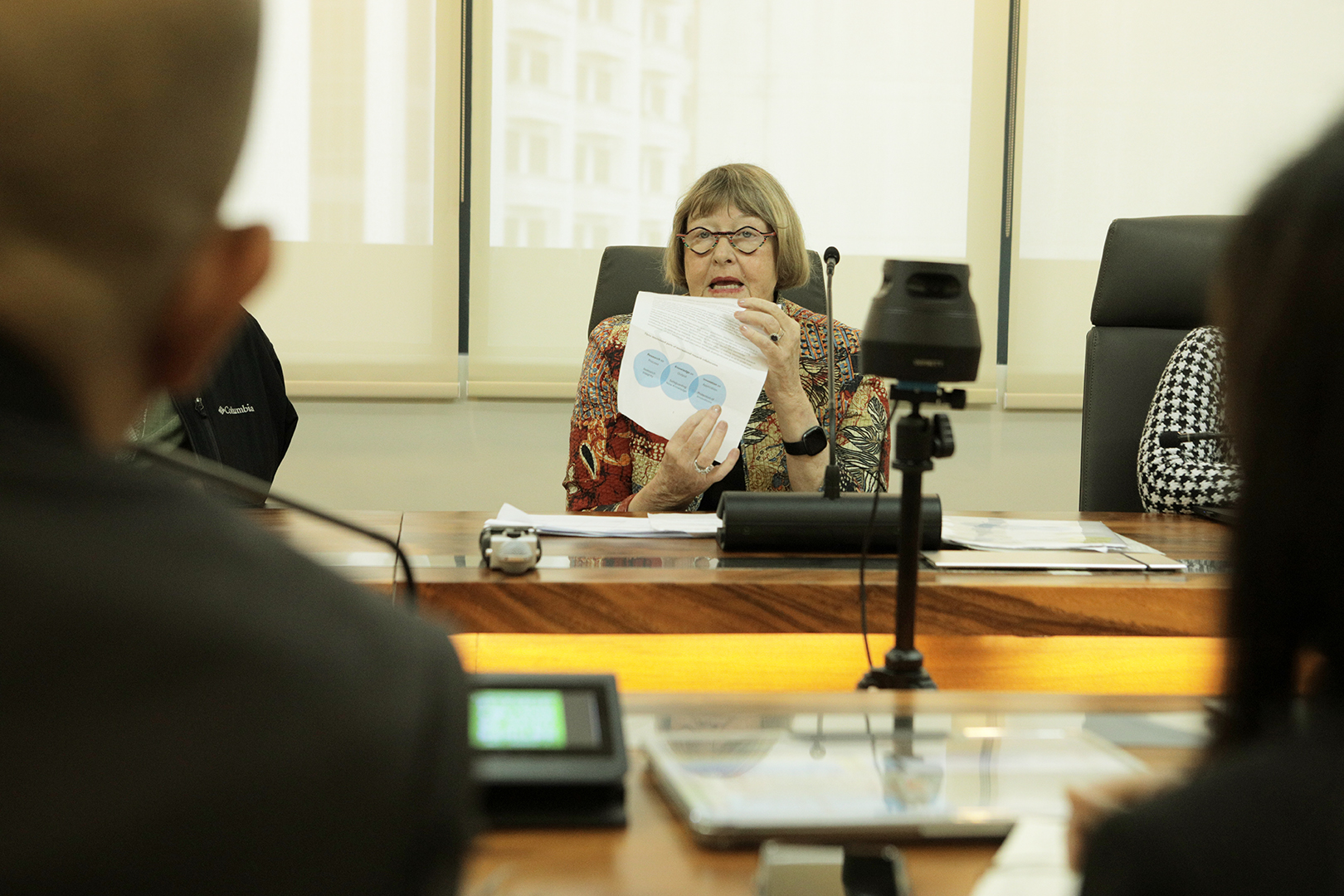
“We in the higher education sector have put a lot of emphasis on the process of doing research. We’ve got ethics review boards, principles of academic freedom, and research integrity,” she explained. “What is now gaining more attention is what happens around the new knowledge that has been produced and its application.“
To illustrate potential risks, Dr. Knight shared several examples:
- Academics as Proxies: Researchers may unknowingly act as proxies for government or industry, leading to unintentional data leaks.
- Intentional Unauthorized Transfer: In Canada, sensitive virus research was stolen and used in biowarfare.
- Dual Use: Research meant for civil applications, such as traffic management systems, can be repurposed for surveillance of ethnic minorities.
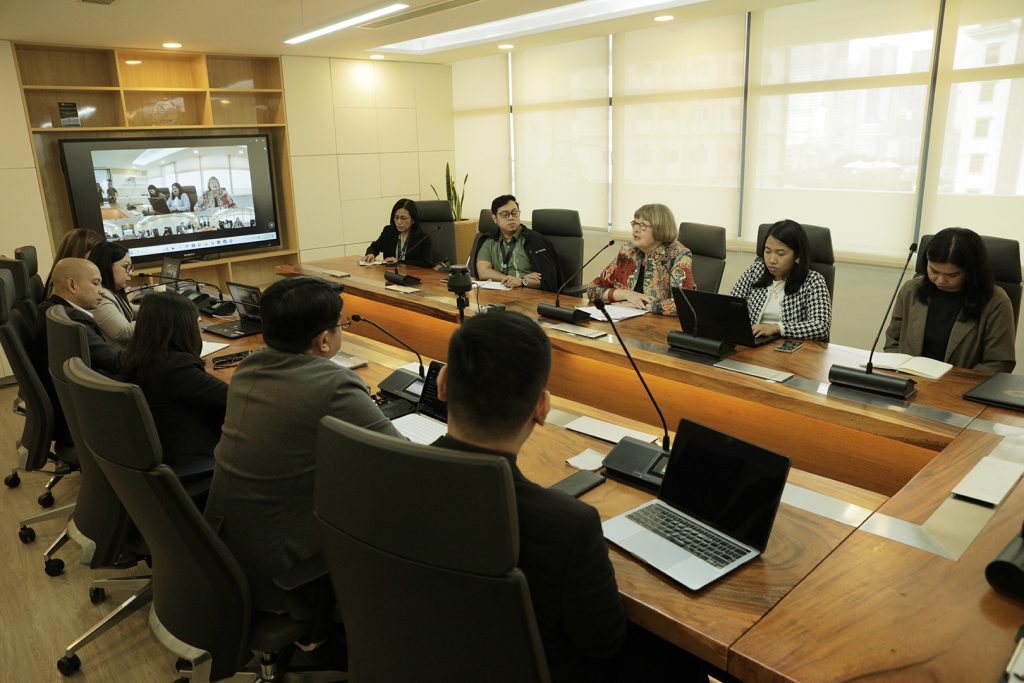
She stressed the need to create awareness and safeguard research without compromising open science principles. “We have to be clear because as soon as you use the word ‘security,’ people think of military security, cyber security, etc. We don’t want that kind of over-securitization,” she said. “Our philosophy as academics is that we’re here to contribute new knowledge for the common good.”
Hosting this discussion demonstrates Benilde’s leadership in higher education. The College’s engagement with top experts like Dr. Knight showcases its dedication to addressing critical issues and promoting a culture of innovation and collaboration.
Dr. Knight also discussed the future of double-degree programs and micro-credentials. She expressed concerns about the integrity of double degrees, where students might earn two degrees for the price of one set of credits. She emphasized the importance of considering the long-term implications of these educational trends.
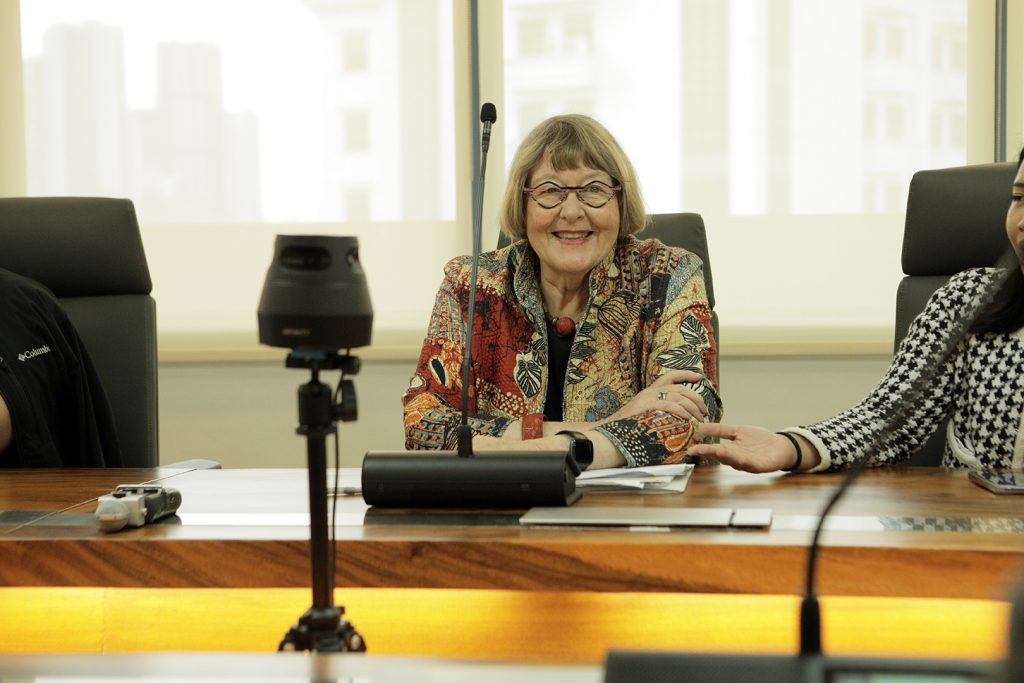
“We have to think long-term about where we’re going with micro-credentials and double-degree programs,” Dr. Knight remarked.
Dr. Knight concluded by highlighting the complexities and responsibilities associated with international higher education research. Her insights stress the need for ongoing dialogue and collaboration to ensure that research is conducted safely and ethically while contributing to global knowledge.
Dr. Jane Knight is a distinguished scholar from the Ontario Institute for Studies in Education at the University of Toronto. With a focus on the internationalization of higher education, Dr. Knight’s work has evolved to encompass the broader concept of International Higher Education Research and Innovation (IHERI). She is renowned for her exploration of the intersection between international higher education and political relations, emphasizing the importance of research security. Dr. Knight has contributed significantly to the understanding of contemporary issues in higher education, including the risks associated with new research findings and the balance between open science and safeguarding sensitive information. Her insights have positioned her as a leading expert in the field, engaging with academic communities worldwide to promote innovation and collaboration.
